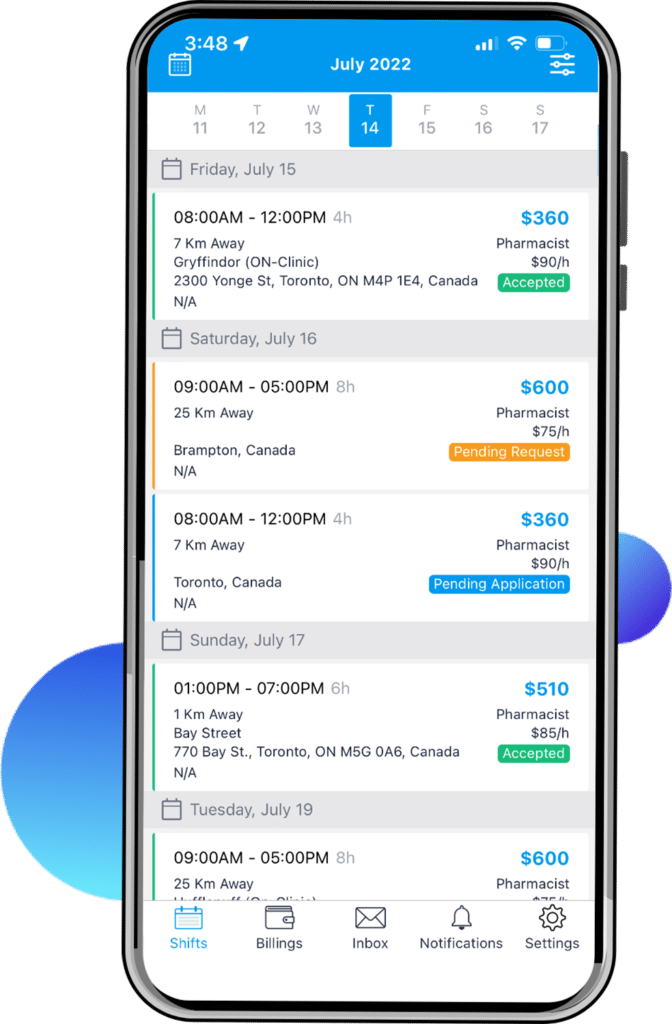
Which Medical Careers Are Most in Demand?
Trending in-demand medical careers include pharmacists, CT techs, EMTs, and more. Compare salaries and duties to choose the best healthcare job.

Now that you're finally out of school and ready to begin your career as a licensed pharmacist, you might be of two minds. On the one hand, you're relieved to be out of school, but perhaps nervous about how to adjust to the pharmacy business. To be certain, there's a lot of pressure in leaving the academic side of things and finding yourself in the real world where there are higher stakes.
But with a little perspective and some helpful tips from those who have been in your position before, you'll be well on your way to becoming a world-class pharmacist.
It should go without saying in any industry, but it's sadly an issue for many in the professional world. When you're starting out, once you've mastered your craft, and even when you're at your peak — always stay humble.
Though a person's skills and qualifications are part of the reason they were hired in the first place, these aren't the only things that matter. If you're the best and most effective at what you do but you make everyone around you feel miserable, you're going to burn some bridges.
No matter what point you are at in your career, keep your ego in check and treat people with love and respect. Avoid gossipping on the job, because this not only creates an unpleasant working environment, but it also sends the message (even to those you're gossiping with) that you're the kind of person to talk negatively behind others' backs.
Just because you've left school, that doesn't mean you're done learning. Throughout your career, make a continuous effort to learn more, both about the pharmaceutical industry and about the services that your particular pharmacy provides.
To stay up to date on the latest developments in the industry, subscribe to credible pharmacy-specific periodicals and email lists. Make an effort to maintain your professional network and regularly meet with a mentor who is at a point in their career that you would eventually like to reach.
At your current job, take some time to familiarize yourself with the workspace, understand what services and products your pharmacy offers, and get to know the people you work with. Knowing your way around the pharmacy will make many of your tasks second nature, allowing you to easily navigate your way throughout your day and better serve your patients.

If you’re just getting started in your career or you’re between jobs, working relief shifts is a great way to make good money while gaining experience and getting exposed to many different pharmaceutical roles and environments. It’s also a helpful method of getting your foot in the door, working alongside a variety of different people, and building a professional network with different teams.
You will mess up at some point in your career — that much is a given. Now, obviously, you'll want to avoid making unnecessary mistakes and maintain a watchful eye on what you're doing, but never let yourself get overwhelmed with fear of making mistakes to the point that it paralyzes you.
A little "fear" — or, more accurately termed, "respect" — of the potential ramifications of your actions as a pharmacist is healthy and motivating. Too much fear will cloud your judgment and make it impossible to act. When you do make a mistake, do your best to correct the problem and minimize harm, and then move forward from the situation armed with the lesson that it taught you.
"Also, don't be ashamed if you don't have the answer to the customer's question right away."
Also, don't be ashamed if you don't have the answer to a customer's question right away. You do need to be knowledgeable about your field as a pharmacist, but there's enough information involved in your work that it's reasonable that you won’t have an immediate answer for every topic. In those situations, simply let the customer know that you'll find out and get back to them soon.
It's crucial to recognize that people who seek out your services are not customers. They're patients. As such, it's important to focus on the people and their individual needs. Be sure to listen to what your patients have to say and communicate your own concerns and directions clearly so your patients feel heard and cared for. This will go a long way toward improving the quality of your care, building trust with those you serve, and ensuring that medications are actually helping your patients and not causing harm.
One of the most valuable resources you have is your professional network. Not only does a well-maintained network help you to get jobs, but having access to a group of like-minded colleagues is useful for keeping your skills sharp, continuing your training and education, and generally having trustworthy people you can call with questions. Stay in touch with your coworkers and make an effort to stay connected, even when you move positions.
Also, don't forget to take advantage of formal networks, like professional associations, alumni groups, and job boards. This keeps your pool of colleagues large, giving you more resources to call upon and offer help to, while also making job searches simpler whenever you're in the market for new work.

Many people think that you need to be in a leadership position to start practicing leadership skills, but in reality, you can start now by leading by example. By taking the time to hone your skills and practice calm, assertive, kindness on the job, you'll become a positive example to your coworkers of a proactive worker, a strong pharmacist, and an overall good person. As your skills and experience grow to match, you'll be in a prime position to offer leadership in a more official capacity. Remember, your first position will likely not be your last. Practice now for the job you want to have one day, not just the one you currently find yourself in.


Trending in-demand medical careers include pharmacists, CT techs, EMTs, and more. Compare salaries and duties to choose the best healthcare job.

The future of pharmacies may be looking at an increasing number of prescription deliveries, but brick-and-mortar pharmacies aren’t leaving anytime soon.

The ShiftPosts co-founders bring decades of expertise from across the healthcare industry, and understand the critical importance of efficient healthcare scheduling of staff.


The role of a pharmacy manager includes overseeing staffing, supplies, and ensuring the pharmacy meets state and federal regulations.

If you are considering per diem work for your pharmacist relief shifts, know what working per diem means, along with its benefits and downsides.
Available for Pharmacy Owners
and Pharmacy Professionals
